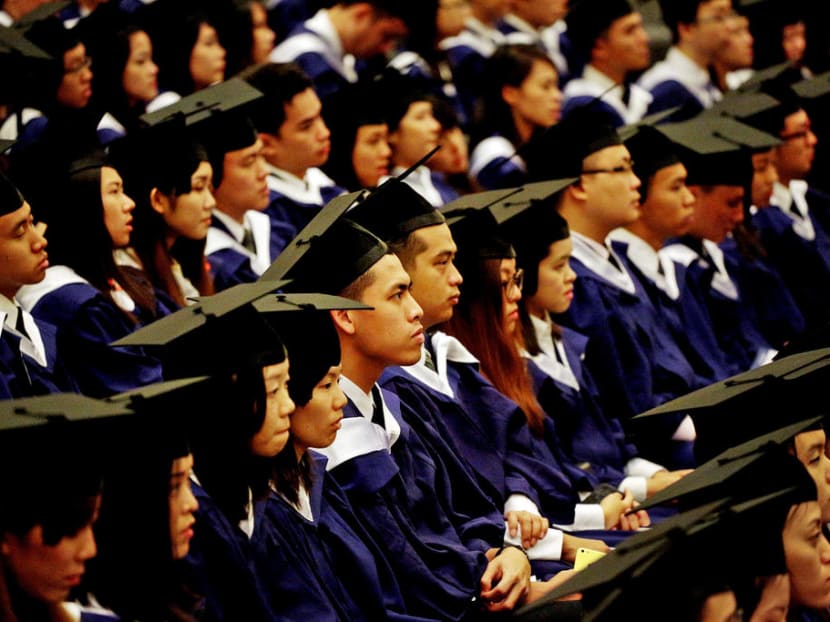Systemic unfairness stems from success — not failure — of meritocracy: Ong Ye Kung
SINGAPORE — While meritocracy may have paradoxically led to systemic unfairness where children have “different starting lines” in life, this stems from the success — not failure — of government policies, said Education Minister Ong Ye Kung as he stressed the need to “double down on meritocracy”.

Education remains a key tool in ensuring social mobility, which continues to be the best way to avoid a stratified society, said Education Minister Ong Ye Kung.
SINGAPORE — While meritocracy may have paradoxically led to systemic unfairness where children have “different starting lines” in life, this stems from the success — not failure — of government policies, said Education Minister Ong Ye Kung as he stressed the need to “double down on meritocracy”.
Speaking on Wednesday (Oct 24) at an annual dinner of non-profit organisation Equal-Ark in the Shangri-La Hotel, Mr Ong noted that despite criticism of the merit-based system, no better alternative has emerged.
“We need to double down on meritocracy, move away from a narrow focus on past academic merit to recognise and celebrate a broader range of skills, talents and strengths,” he said.
This should translate into tangible changes in how people are hired, students are admitted to tertiary institutions, and awards and scholarships are granted, and in the way respect to fellow Singaporeans is accorded.
While Singapore has made very good progress in using education as a tool to lift social mobility, Mr Ong conceded that the “job is getting harder” on account of “some strong social headwinds”.
He said the merit-based system, which recognises talent and ability over wealth and circumstance of birth, appears to have spawned systemic unfairness.
This is because, with families doing well, they spare no effort in investing in the abilities of their children, especially when they believe in meritocracy. As a result, children from different family backgrounds are “pushing off blocks from different starting lines”, he said.
“The more we uplift families, the harder it is to uplift those who remain poor,” Mr Ong said.
Even so, he warned that Singapore will discard the philosophies and policies it has in place if “we mistakenly think that the challenges result from policy failure”.
He said: “Whatever we replace them with are most likely going to be worse. Conversely, if we recognise that the challenges are a result of sound policies having to adjust to new realities, then our conclusion will be quite different: We will want to evolve and improve existing policies to suit the challenges of our time.”
Aside from the meritocratic system, inequality in achievements is another challenge. While the proportion of students from lower-income families is falling, families that remain poor are facing greater difficulty, he noted.
A tempting solution is to “chop down the tall poppies to equalise outcomes”, but this runs contrary to the nature and instinct of Singaporeans, who invariably strive to do their best, he said.
“Let’s not cap the top, but do even better in lifting the disadvantaged,” he added.
In recent weeks, a spirited debate on inequality has been ignited, with various government leaders — including Prime Minister Lee Hsien Loong — weighing in.
Mr Ong said that while Singaporeans may be less worried that inequality exists — given that income gaps and uneven distribution of wealth happens in every society — it becomes a “worrying threat” when the gap is entrenched, society becomes stratified, and people begin to segregate.
Pointing to the strides which the country has made on the education front, Mr Ong noted that 15 years ago, half of the students from the bottom socio-economic quintile moved to post-secondary education. It is nine in 10 now.
Over the same period, the share of students in the same group who advanced to publicly funded degree or diploma courses rose from 40 per cent to 50 per cent.
Education remains a key tool in ensuring social mobility, which continues to be the best way to avoid a stratified society, he said.
“So long as young Singaporeans from humble backgrounds can grow up to be successful, social distinctions will have less chance to coagulate and our society can continue to stay together as one,” said Mr Ong.








